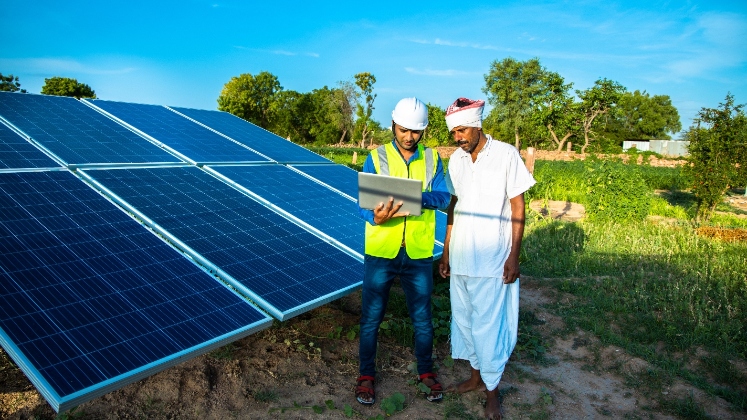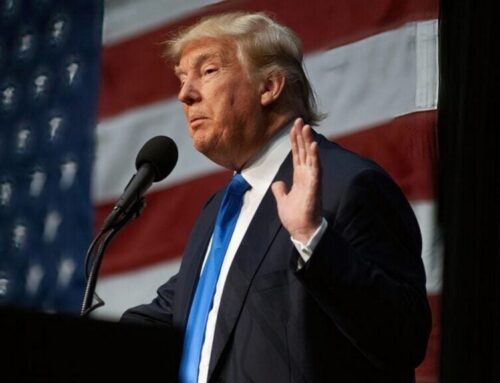India’s drive towards renewable energy faces the fog of geopolitics
September 17, 2024

India is rapidly expanding the production of solar and other types of renewable energy. The growth of renewables creates a race to obtain critical minerals, which opens the door for international conflict. Diljeet Kaur and Mujibur Rehman write that India navigates these and other geopolitical crises through an often-misunderstood path of multi-alignment that embodies the country’s unique spiritual and cultural ethos.
“The transition towards renewable energy represents a game changer for interstate energy relations.”
Daniel Scholten (The Geopolitics of Renewables, 2018)
The energy sector is considered a major driver of climate change. According to the International Energy Agency (IEA), the sector generates around three-quarters of the world’s greenhouse gas emissions. Recently, this sector is facing major geopolitical risks in various nations, especially in Europe. In this context, it becomes imperative to look at the global renewable energy sector within the perspective of current geopolitical developments.
The Russia-Ukraine war led to a setback in global renewable energy goals. Researchers argue that an important dimension of interstate energy relations is the development of domestic renewable energy.
In our recent paper, we begin by examining the status of renewable energy deployments across the globe with special reference to India. China is a class apart, due to its staggering level of renewables installations. It has also established itself as a global leader in renewable, especially solar manufacturing. Its progress serves as a valuable model for other nations to follow.
India has emerged as one of the top five nations in renewable energy installations, reaching fourth place behind China, the US and Brazil. In generation of solar power, India surpassed Japan to claim the third spot in 2023, from ninth in 2015. India also has the fourth highest number of wind power installations following China, the US and Germany.
The country is the world’s fifth largest producer of ethanol after the US, Brazil, the EU and China. In addition, increased investments are also being seen in the field of critical minerals and green hydrogen. The government created Mission Hydrogen, a program to support the development of hydrogen supply chains. Given that India is a developing country and the third biggest oil importer and consumer, achieving these milestones is a commendable contribution towards global sustainability.
The growth of renewable energy affects international relations, especially in the context of the Russia-Ukraine war. To analyse this angle, we use the core issues identified by Vakulchuk et al (2020): the peace and conflict potential of renewables, potential winners and losers, and cybersecurity.
Peace and conflict potential of renewables
Recent developments suggest that despite the decentralised nature of renewable energy, which is expected to reduce energy-related risks in the world, newer possibilities for conflict might emerge in the future, such as those related to critical minerals. We explore these possibilities with respect to the transition and the post-transition period.
Potential winners and losers
To investigate potential winners and losers, we adopt the typology offered by Smith Stegen (2018), which propounds three indicators: renewable energy potential, political receptiveness and hydrocarbon lobby. India is making a synergistic use of all three factors to provide an impetus to its renewables sector and to reduce risky energy dependencies. In addition to China, some countries such as India may emerge as better and larger producers of renewables, due to their higher resource potential, major political initiatives to exploit this potential and huge investments by the hydrocarbon sector in addition to those by the government.
Cybersecurity
Finally, cybersecurity issues related to renewables also assume greater significance. In the future, renewables systems will be more digitalised and widespread. As per the IEA, cybersecurity is still not accorded great significance in the power utility sector. The increase in cyberattacks on global energy systems, especially after the Ukraine war, has highlighted the world’s vulnerability to cyber risks due to geopolitical conflicts.
Keeping these issues in mind, the time is now ripe for India to accelerate its renewables deployments through global collaborations and to support other developing nations in deploying renewable energy projects. The IEA also envisions India as a role model in renewables and inclusive growth. The country has signed multilateral and bilateral alliances with organisations and developed and developing nations such as the US, Australia, Japan, France, UK, Brazil, Nepal, African countries and the EU, apart from Russia. These agreements are expected to benefit these nations as well as India, on its path to sustainability and energy security.
However, amid the Russia-Ukraine war, India, which is the world’s third largest energy consumer, walks a tightrope in meeting its current energy needs while pushing towards renewables. The country has followed a multi-alignment strategy in international relations. This has helped it deftly avoid an energy crisis, unlike what happened in other developed nations.
Though India faces much criticism from various countries for its multi-alignment strategy, critics often overlook the unique culture and value system embedded in the Indian psyche for centuries. This is further reinforced through the teachings of its spiritual gurus such as the fifth Sikh Guru Arjan Dev, revered across geographical boundaries by Sikhs, Hindus and Muslims, who said: “I am a friend to all; I am everyone’s friend”. Such a response has far-reaching implications for not just world peace but also collaborative sustainability.
Since the current geopolitical tensions have altered interdependencies among nations, governments must formulate forward-looking policies that lead towards greater energy security. Gradually, as the world transitions towards renewables, the impact of renewable energy on geopolitics, and consequently policymaking, is only bound to increase. The time is ripe for policymakers to seize this moment.
Sign up for our weekly newsletter here.
Search
RECENT PRESS RELEASES
Related Post



